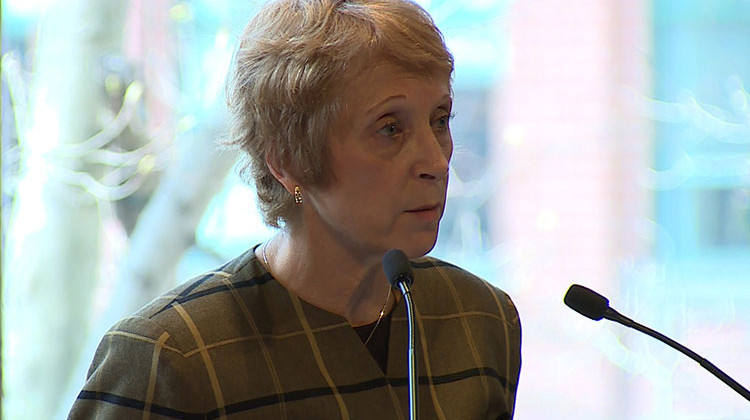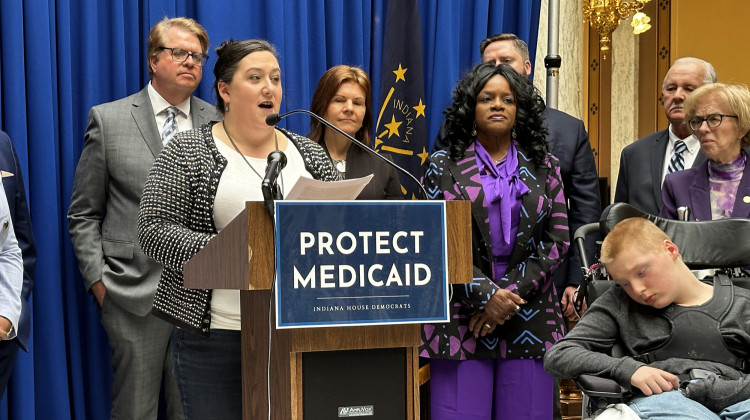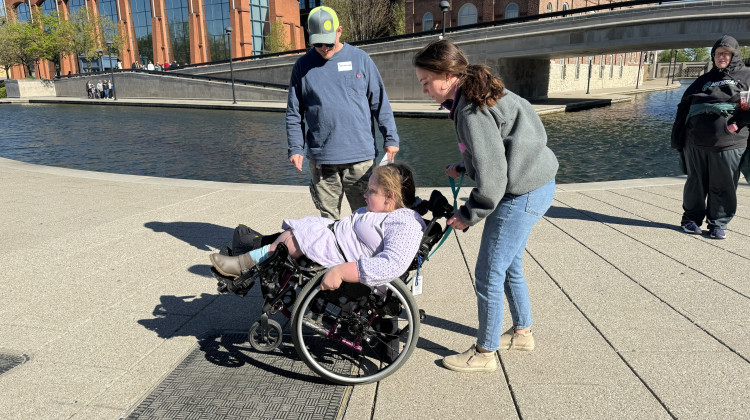
Robin Newhouse speaks at an opioid conference hosted by the Indiana Clinical and Translational Sciences Institute Wednesday.
Steve Burns/WTIU-WFIU NewsIndiana University leaders are preparing for the second phase of the university’s effort to tackle the state’s addiction crisis.
President Michael McRobbie announced in October IU would partner with the state and invest $50 million to tackle the opioid epidemic as part of the university’s Grand Challenges initiative.
Sixteen projects launched in January as part of the first phase of the initiative, delving into several different topics, including research and policy analysis.
Read More: IU Creates New Research Position To Combat Opioid Epidemic
Robin Newhouse, the dean of the Indiana University School of Nursing and the lead investigator for IU’s response to addictions, says they’re already learning from the projects.
“We have held many listening sessions, local conversations, two scoping reviews,” Newhouse says. “In another week, we’ll be holding ideas labs, so we can think differently about super ordinate goals associated with how we tackle this addiction crisis.”
Newhouse says the goals of the massive initiative include reducing the number of drug related deaths and substance abuse disorders as a whole, and to reduce the number of babies born with neonatal abstinence syndrome, an opiate dependency.
The first report from one of the phase one projects will be released Thursday with recommendations on how policy can help the opioid crisis.
 DONATE
DONATE








 View More Programs
View More Programs


 Support WFYI. We can't do it without you.
Support WFYI. We can't do it without you.